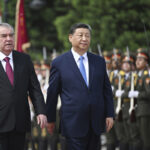The Central Bank of Bolivia is now selling dollars directly to citizens in order to curb what it is calling a speculative attack that has increased the demand of the population for foreign currency. This rise in demand has been caused by several factors which led the population to believe there might be a devaluation move coming.
Central Bank of Bolivia Sells Dollars to Appease Local Market
The Central Bank of Bolivia is executing extraordinary measures to supply its internal market with foreign currency. On March 6, the monetary institution announced that it would start selling dollars to the citizens directly, adding its action to the established traditional currency exchange market.
The measure would counter what the central bank is calling a “speculative attack” on the national monetary system, prompting Bolivians to purchase more dollars in order to protect from a rumored increase in the exchange rate. Edwin Rojas, president of the Central Bank of Bolivia, stated:
Fears of Devaluation
The increased demand for dollars that the central bank is facing has to do with fears about the current state of the national reserves, and how this can trigger a change in the exchange rate of the U.S. dollar.
In Bolivia, there is a fixed exchange rate, set back in 2011, that establishes each dollar is valued at 6.86 bolivians, the fiat currency of the country. Countries like Venezuela and Argentina, which had established exchange controls on foreign currency, have experienced elevated levels of devaluation and inflation due to these restrictions.
On March 9, Rojas gave a summary of how the market was reacting to this measure, noting that more than $91 million was allocated during the last two weeks to satisfy the unprecedented demand. He explained that the country had no plans for changing its monetary policy.
However, analysts are uncertain about the sustainability of these movements. The last report on the status of the foreign currency reserves dates from February 8, when the central bank reported having $372 million. This is less than the $400 million that Antonio Saravia, a local economist, estimates that the national market needs monthly. He doubts the government can sustain this level of intervention for too long.
Source: bitcoin
















